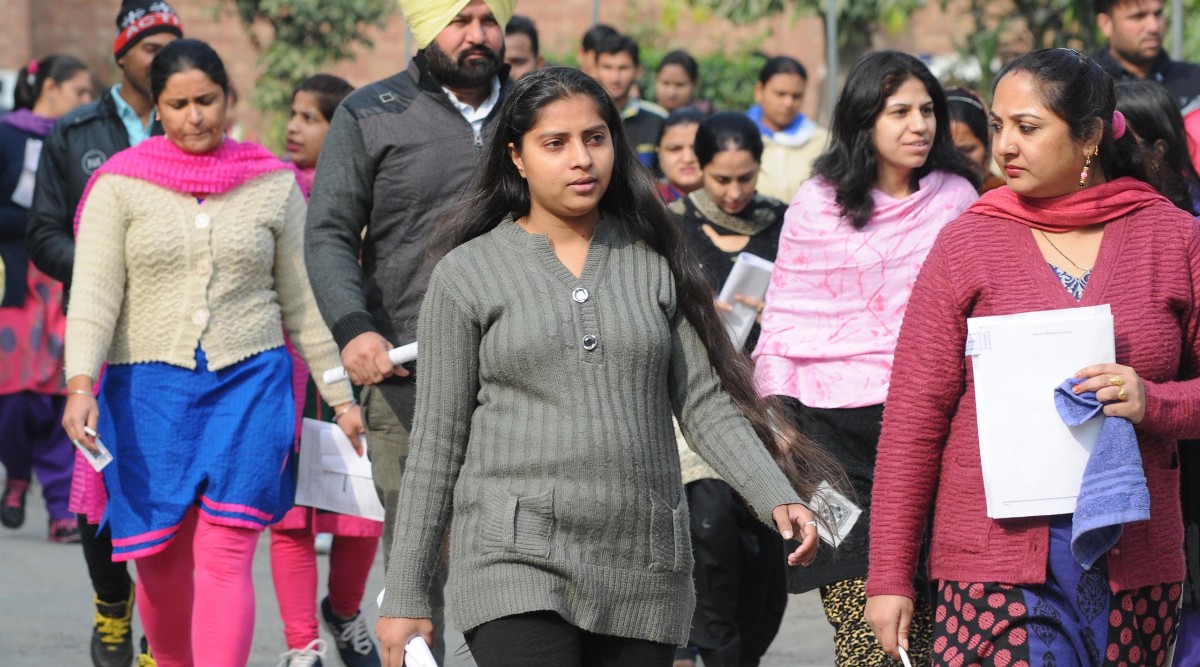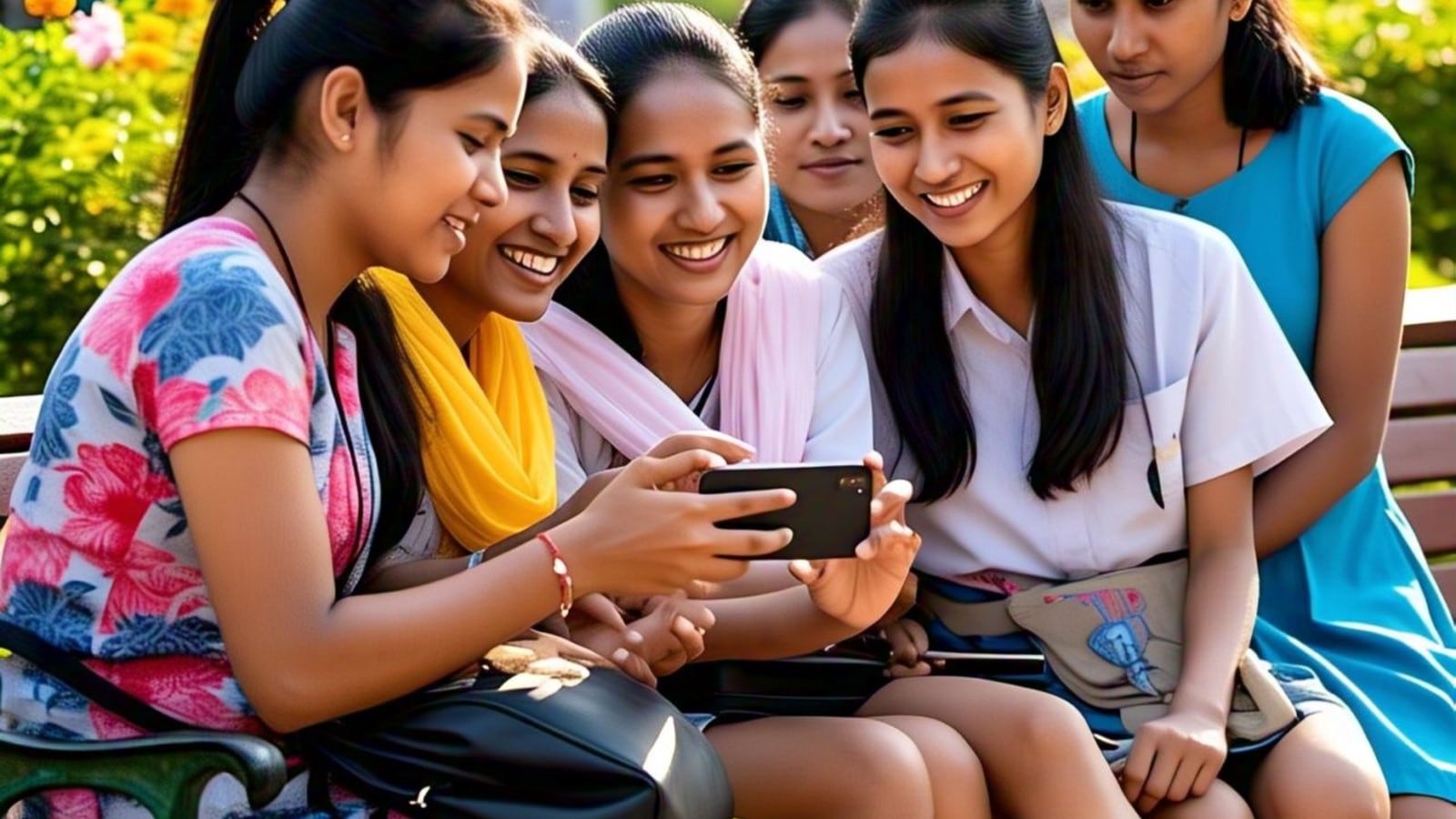With no clarity from India’s top medical education regulator and their respective universities, students who have come back from war-torn Ukraine continue to attend online classes for lack of other options.
The first- and second-year students cannot do much other than apply for NEET-UG again or go back to their universities in Ukraine that have assured normal functioning in the Western part of the country that is not under siege. Even for students who are allowed to transfer out, getting documents and transcripts from their universities is a challenge, coupled with higher fees in countries offering the same quality of education, the students said.
The students The Indian Express spoke to said that they were awaiting the submission of final guidelines on the issue by the National Medical Commission (NMC) in the Supreme Court before taking a decision on what to do.
The Commission, on directions of the Supreme Court in April, proposed to the Union Ministry of Health and Family Welfare that the final year students be allowed to sit for the screening test, after clearing it they can complete their two-year internship in India itself on provisional registration, before getting the permanent license to practice medicine in the country.
The yet-to-be-approved proposal says that first- and second-year students could reappear in the NEET-UG test and start their education again in Indian colleges. These first-year students are not allowed to transfer to another university since they joined their medical programme after a new guideline came into effect in November 2021. According to the new guideline, foreign medical graduates have to complete their theoretical education, practical training, and a year of internship from the same institute. Although silent on third- and fourth-year students, the NMC proposal seems to imply that they should join equivalent medical courses in other countries.
‘Won’t go to Russian universities’
It’s not only the lack of clarity from the NMC, but also around the process of how and when they can get their transcripts have left the third- and fourth-year medical students who have returned from Ukraine in a lurch. Two students that the Indian Express spoke to said that Poland and Hungary, which are also part of the European Credit Transfer System, and offer similar quality of education, are too expensive.
Yashdeep Bidhan, a third-year student at Kharkiv National Medical University, said, “The fee is between $4,000 to 5,000 a year in Ukraine as compared to $10,000 in the two countries.”
Echoing similar views, his batchmate Animesh Mishra said, “It can even go up to $15,000 a year, excluding housing, in the main city areas. And, the quality of education is just not the same in countries such as Kazakhstan, Kyrgyzstan, Georgia, and Armenia that offer similar fee structures.”
Both said that they would not go to Russian universities that also offer medical education at similar fee structures and are inviting students from Ukraine. Bidhan said, “Russia has said that they will accept students from Ukrainian universities but I don’t think any of us want to go there. Ukraine to us is like our second home and we don’t want to support the country that has done this.” Mishra said, “What Russia did has changed my life completely, I will never be able to forget what I saw there.”
Besides, Mishra said getting their transcripts from the universities in Ukraine would also likely be a long-drawn process. “We are waiting to see what the NMC says, we don’t want to join a course in some other country only to realise later that there is some technicality because of which we are not eligible to sit for the screening test.”
He said, “The agents have said that we have to deposit a certain amount at the university and seek our documents and transcripts, which will be physically mailed to us. The Ukrainian transcripts have to be signed by the dean and their ministry. All of this is likely to take two to three months after the process is initiated.”
Waiting for a callback
The third-year medical students in Ukraine need to appear for a screening test before progressing. This was the reason many in their third year, as well as the sixth year when a second test is conducted, stayed back in Ukraine even in the face of worsening situations.
“For now, we have been told that the exam will happen in late September but there is no clarity on how. It may happen online or in the safer Western parts of Ukraine, where all the universities might shift,” said Mishra. Bidhan added, “This exam, which is conducted across all medical universities, does not happen online. If the situation does not improve, it might get cancelled.”
As for first-year students, without any real options, they are hoping that universities call them back. “From what we are hearing from the university, we will be called back in September after the summer break is over. The western parts of the country are pretty safe and even in Kyiv there are still some students living in the hostels,” said Adhivesh, a first-year medical student at Kyiv Medical University.
Sahil Khan, a first-year medical student at Uzhhorod National Medical University, said, “They are saying that they will call us back offline. I was in the Western part of the country which is safe and functioning normally. Our only option is to either go back to Ukraine or see if we are allowed to go to other countries. I did not sit for the counselling for NEET 2021 as my marks were quite low and if I sit this year I will have to repeat one year again.”
Juggling time zones
For now, all the students are attending online classes cutting across time zones, with many professors teaching from outside the country. Mishra just completed his sixth semester online with his teachers logging into Google Meet or Zoom from places like Istanbul, Paris, and New York.
“Many teachers are still in Ukraine, but most of them are in the safer western parts of the country or in remote villages. For those who are in unsafe locations or have connectivity issues, the university has started an asynchronous teaching method where they share notes and teaching material with us and we have to send in our tests and assignments based on it,” said Mishra.
Adhivesh added, “Most of the women faculty members are teaching from their homes, mostly in the interior, remote villages. But male faculty members are still in Kyiv.”
He added that whether in Ukraine or several other countries, teachers and students alike have learnt how to operate in Ukrainian time. “We are 2:30 hours ahead of them in summer and 3:20 hours ahead in winter. So, when the classes there start at 9 am, we log in at 11:30,” he said.
!function(f,b,e,v,n,t,s)
{if(f.fbq)return;n=f.fbq=function(){n.callMethod?
n.callMethod.apply(n,arguments):n.queue.push(arguments)};
if(!f._fbq)f._fbq=n;n.push=n;n.loaded=!0;n.version=’2.0′;
n.queue=[];t=b.createElement(e);t.async=!0;
t.src=v;s=b.getElementsByTagName(e)[0];
s.parentNode.insertBefore(t,s)}(window, document,’script’,
‘https://connect.facebook.net/en_US/fbevents.js’);
fbq(‘init’, ‘444470064056909’);
fbq(‘track’, ‘PageView’);







